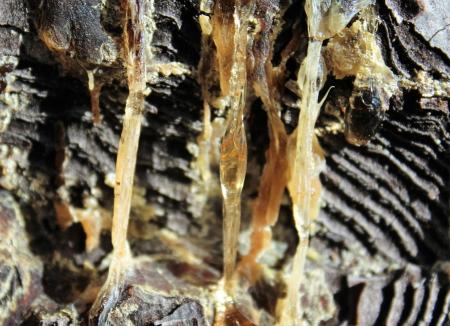
Objective:
The study compares different formulations based on natural raw materials for plastics production and demonstrates the important role that natural resin derivatives can play in the improvement of biobased and/or biodegradable plastics performance, as an alternative to those derived from petroleum.
The final objective is to provide consumers with biodegradable plastic material of excellent technical qualities for the production of packaging and applications in construction, automotive, electronics or agriculture, in a context of environmental and economic sustainability.
Context:
Plastic is a widely used material in the world, with an annual production of around 335 million tons. The use of plastic derived from petroleum presents a serious environmental problem due to its origin and its great contribution to the longlasting waste generation, as is the case for plastic for packaging and agricultural uses.
One solution is biodegradable plastics use, that quickly transform into compost.
However, bioplastics present poor properties compared with petrochemical counterparts. This is why several natural additives are being used to extend bioplastic industrial exploitation.
Contacts:
Marina P. Arrieta, marina.arrieta@gmail.com, https://www.ucm.es/quimica-organica-1/personal
Juan López Martínez, jlopezm@mcm.upv.es, www.upv.es
Further information:
Arrieta et al. 2013. Characterization of PLA-limonene blends for food packaging applications. Polymer testing, 32 (84): 760-768.
https://www-sciencedirect-com.bucm.idm.oclc.org/science/article/pii/S001430571300548X